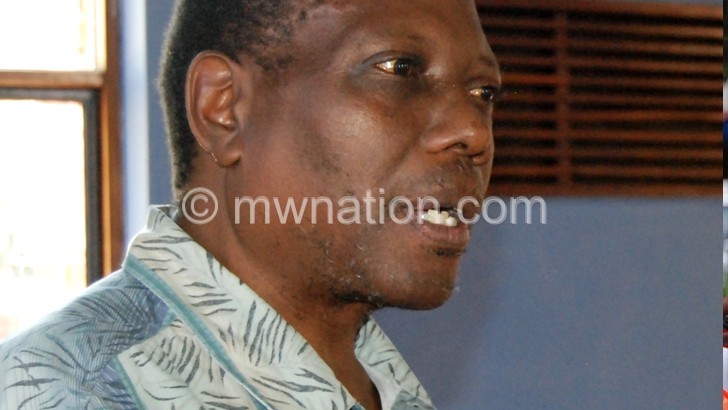Malawi govt in financial fix
Revelations about public hospitals depleting 87 percent of their drug budgets with four months to the end of the financial year have shown that the country cannot do without donors, it has been established.
Economists interviewed on Monday have since advised government to up its game in terms of fighting corruption as well as ensuring transparency and accountability in public expenditure to regain donor confidence and ease the suffering of the people deprived of efficient delivery of essential services.
The commentators were reacting to the main story in yesterday’s edition of The Nation which said the country’s district hospitals have blown up 87 percent of their drug budgets, raising fears that patients could die from treatable ailments because of lack of medication.
The Ministry of Finance, Economic Planning and Development has since said it has no more funds to provide for the drug budget.
By February 27 2017, district health offices (DHOs) had overshot by K2 billion the K6.7 billion budget for eight months as the cost of drugs ended up hitting K8.7 billion.
Ministry of Finance allocated K10.6 billion to the National Local Government Finance Committee for the purchase of drugs for all DHOs and eight months down the line, only K1.9 billion was remaining in the drug budget.

Faced with donor aid freeze since October 2013 due to abuse of public funds in a multi-billion kwacha scam called Cashgate, Malawi has been struggling to balance its budgets where development partners put in up to 40 percent on the recurrent budget and at least 80 percent for the development budget.
Ironically, President Peter Mutharika is on record as having boasted that the country was surviving on domestically generated resources. He was apparently touting the zero-aid budget Minister of Finance, Economic Planning and Development Goodall Gondwe has been presenting in Parliament in the past three years.
But economist Henry Kachaje yesterday described the assumption that Malawi can survive on domestic resources as catastrophic.
Kachaje, who is Economics Association of Malawi (Ecama) president, said the country is far from standing on its own feet as its economic base is not diverse enough to meet the needs of the country.
He added that Malawi’s tax base cannot meet recurrent expenditures and other project expenditures.
Said Kachaje: “Malawi is in a state whereby economic management is not yet at a level where we can say it can stand without donor support.
“Corruption is rampant and there is general mismanagement of funds where resources are not yet prudently and fully utilised.
“Our capital investment is not yet there. We need a long-term plan if we are to move from donor dependency. As a country, we need to prioritise on projects that have a capacity to kick start our economy.”
Ben Kaluwa, an economics professor at Chancellor College, a constituent college of the University of Malawi (Unima), echoed Kachaje’s sentiments, saying it is unrealistic to assume that Malawi can provide for itself.
He said: “There is so much that needs to be done in terms of infrastructure development, telecommunications, railway line development, the health sector and education. Government should work on winning donor confidence.”
On his part, head of economics at the Catholic University (CU), Gilbert Kachamba, said government should identify some priority areas and ensure that they are always supported. He mentioned health as one of the key sectors that should be spared from collapse.
He said: “If Malawi was transparent enough on issues of procurement we wouldn’t have been facing such challenges. Looking at the money that institutions such as the Malawi Revenue Authority [MRA] collects, Malawi can be able to make it on its own. The problem is corruption.”
The sentiments also fit in well into findings by the Malawi Economic Justice Network (Mejn) which in February said its public expenditure tracking survey in several districts established that contrary to the positive outlook being touted by the government, this was not trickling down to ordinary Malawians.
Ministry of Finance, Economic Planning and Development spokesperson Alfred Kutengule yesterday asked for more time to consult.
However, Gondwe, reacting to the depleted drug budget, was quoted in yesterday’s edition of The Nation as having said he had no money to make fresh allocations to budget lines such as drugs.
He said: “Where will I get the money? We do not have money. We will see when we get there.”
Ironically, during the Mid-Year Budget Review in February this year, Parliament increased allocations to 15 votes, including State Residences from K5.3 billion to K5.9 billion. Ministry of Health also got an extra allocation from K95 billion to K101 billion.
During the review, there were 31 votes that faced the chop, including the Office of the Vice-President, while five were maintained. These included Malawi Electoral Commission (MEC) and Legal Aid Bureau.
Despite being under MoH, district health offices (DHOs) have their drug budgets channelled through National Local Government Finance Committee (NLGFC); hence, the increased funding to MoH would not affect the budget line.
Parliamentary Committee on Health chairperson Juliana Lunguzi said she was not surprised that the drug budget to districts has been exhausted as her committee pointed out during debate on the national budget that the drug budget was on the lower side.
She said: “It is very unfortunate that we have reached this level. We told the Minister of Finance about this and he told us that there was nothing he could do.”





